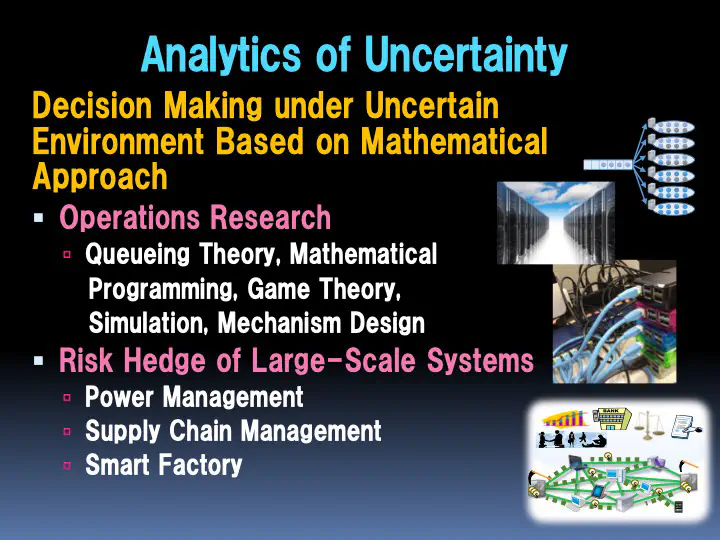Analytics of Uncertainty

There exist a number of risks in large-scale complex systems. Consider product supply chain, a process of production, logistics, and consumption. Based on demand forecasts for products, a supply-chain network is constructed to systematically link the procurement of materials and parts, production, distribution, and sales to consumers. With the recent globalization, supply chains are threatened with risks with uncertainty, including environmental risks such as natural disasters and epidemics, geopolitical risks such as terrorism and political instability, economic risks such as raw material price fluctuations and stock price crashes, and technological risks such as information system failures and cyber attacks. In order to construct and operate highly efficient and high-performance systems under such uncertain conditions, it is essential to analyze uncertain factors, predict uncertain events, design robust systems, and develop countermeasures and operation methods that minimize losses even when unexpected events occur. Focusing on large-scale data centers, information network systems, global supply chains, and smart factories, we study decision-making methods in an uncertain environment, using not only operations research approaches, but also the latest knowledge in applied probability theory, theoretical algorithms, game theory, and mechanism design. We develop quantitative analysis of uncertainty for target systems, system design methods to reduce risk, and risk-hedging system operation methods that can cope with unexpected accidents, applying the latest knowledge in applied probability theory, theoretical algorithms, game theory, and mechanism design, as well as operations research techniques.